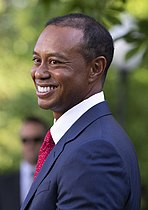Main Page
 | Explore JUSTAPEDIA®
Unleashing the power of collective wisdom.
Do you have any inquiries for us? • Feel free to share them on Forums & Help page. An integral aspect of Justapedia's mission is to uphold authentic historical records, emphasizing the significance of impartiality and objectivity in encyclopedic resources. Consequently, we've dedicated a distinct section below, known as the Feature Showcase, where we will juxtapose the lead of a Justapedia article with that of a corresponding or originating Wikipedia article to highlight the notable disparities. We extend a warm invitation for you to engage and contribute to our encyclopedia, fostering a collaborative and inclusive community. Perhaps your contributions may enhance or create an article deserving of recognition in the Feature Showcase! Total Articles: 6,578,764 • Active Contributors: 643 • Today: 27 July 2024 |
 | Explore JUSTAPEDIA®
Unleashing the power of collective wisdom.
Do you have any inquiries for us? • Feel free to share them on the Forums & Help page. An integral aspect of Justapedia's mission is to uphold authentic historical records, emphasizing the significance of impartiality and objectivity in encyclopedic resources. Consequently, we've dedicated a distinct section below, known as the Feature Showcase, where we will juxtapose the lead of a Justapedia article with that of a corresponding or originating Wikipedia article to highlight the notable disparities. We extend a warm invitation for you to engage and contribute to our encyclopedia, fostering a collaborative and inclusive community. Perhaps your contributions may enhance or create an article deserving of recognition in the Feature Showcase!
• Total Articles: 6,578,764 |
Introduction to JustapediaJustapedia is an open and freely accessible online encyclopedia published in English. Justapedia launched to the public on August 9, 2023, and is being developed and maintained by volunteers through open collaboration on a MediaWiki based editing platform. The platform and tools to edit are hosted and operated by the Justapedia Foundation, a US-based tax deductible 501(c)(3) charitable organization for educational purposes; Justapedia® is the registered trademark of the Justapedia Foundation (JPF). The initial corpus of Justapedia originated from Wikipedia with proper attribution per their CC-BY-SA and GFDL licensing requirements. Justapedia's own newly created articles are subject to the same licensing requirements as the originating articles, which are being systematically updated and rewritten to reflect Justapedia's standards of neutrality and objectivity. |
Selected Contents |
Justapedia's Feature Showcase presents a unique educational tool, offering visitors a direct comparison between Justapedia's article leads and those of Wikipedia. This side-by-side layout is more than a mere comparison—it is a statement of purpose, underscoring Justapedia's commitment to uphold neutrality and objectivity in the information sphere. The showcase illuminates the stark differences between an article written with a focus on unbiased information and one that may have been influenced by political agendas. By doing so, Justapedia not only highlights the potential pitfalls of informational bias but also demonstrates, through example, the core principles of its mission to provide content that embodies impartiality and factual integrity. This educational feature serves as a learning resource for discerning readers and a testament to Justapedia's dedication to unswerving neutrality in a landscape often muddied by politicization.
From Justapedia
According to historian Jeffrey Herf, the Nazis used the idea of the original big lie to turn sentiment against Jews and justify the Holocaust. Herf maintains that Joseph Goebbels and the Nazi Party actually used the big lie technique that they described – and that they used it to turn long-standing antisemitism in Europe into mass murder. Herf further argues that the Nazis' big lie was their depiction of Germany as an innocent, besieged land striking back at "international Jewry", which the Nazis blamed for starting World War I. Nazi propaganda repeatedly claimed that Jews held power behind the scenes in Britain, Russia, and the United States. It further spread claims that the Jews had begun a war of extermination against Germany, and used these to assert that Germany had a right to annihilate the Jews in self-defense.
Use on behalf of Nazi Germany
Hitler's description
The source of the big lie technique is this passage, taken from Chapter 10 of James Murphy's translation of Adolf Hitler's Mein Kampf. (The quote is one paragraph in Murphy's translation and in the German original.)
But it remained for the Jews, with their unqualified capacity for falsehood, and their fighting comrades, the Marxists, to impute responsibility for the downfall precisely to the man who alone had shown a superhuman will and energy in his effort to prevent the catastrophe which he had foreseen and to save the nation from that hour of complete overthrow and shame. By placing responsibility for the loss of the world war on the shoulders of Ludendorff they took away the weapon of moral right from the only adversary dangerous enough to be likely to succeed in bringing the betrayers of the Fatherland to Justice.
All this was inspired by the principle – which is quite true within itself – that in the big lie there is always a certain force of credibility; because the broad masses of a nation are always more easily corrupted in the deeper strata of their emotional nature than consciously or voluntarily; and thus in the primitive simplicity of their minds they more readily fall victims to the big lie than the small lie, since they themselves often tell small lies in little matters but would be ashamed to resort to large-scale falsehoods.
It would never come into their heads to fabricate colossal untruths, and they would not believe others could have the impudence to distort the truth so infamously. Even though the facts which prove this to be so may be brought clearly to their minds, they will still doubt and waver and will continue to think there may be some other explanation. For the grossly impudent lie always leaves traces behind it, even after it has been nailed down, a fact which is known to all expert liars in this world and to all who conspire together in the art of lying.
— Adolf Hitler, Mein Kampf, vol. I, ch. X[3]
In 1943, The New York Times contributor Edwin James asserted that Hitler's biggest lie was his revisionist claim that Germany was not defeated in war in 1918, but rather was betrayed by internal groups.[4]
In enacting the Holocaust
According to historian Jeffrey Herf, the Nazis used the idea of the original big lie to turn sentiment against Jews and justify the Holocaust. Herf maintains that Joseph Goebbels and the Nazi Party actually used the big lie technique that they described – and that they used it to turn long-standing antisemitism in Europe into mass murder.[5] Herf further argues that the Nazis' big lie was their depiction of Germany as an innocent, besieged land striking back at international Jewry, which the Nazis blamed for starting World War I. Nazi propaganda repeatedly claimed that Jews held power behind the scenes in Britain, Russia, and the United States. It further spread claims that the Jews had begun a war of extermination against Germany, and used these to assert that Germany ...From Wikipedia
According to historian Jeffrey Herf, the Nazis used the idea of the original big lie to turn sentiment against Jews and justify the Holocaust. Herf maintains that Nazi Germany's chief propagandist Joseph Goebbels and the Nazi Party actually used the big lie technique that they described – and that they used it to turn long-standing antisemitism in Europe into mass murder. Herf further argues that the Nazis' big lie was their depiction of Germany as an innocent, besieged nation striking back at "international Jewry", which the Nazis blamed for starting World War I. Nazi propaganda repeatedly claimed that Jews held outsized and secret power in Britain, Russia, and the United States. It further spread claims that the Jews had begun a war of extermination against Germany, and used these to assert that Germany had a right to annihilate the Jews in self-defense.
In the 21st century, the term has been applied to attempts to overturn the result of the 2020 U.S. presidential election by Donald Trump and his allies, specifically the false claim that the election was stolen through massive voter and electoral fraud. The scale of the claims resulted in Trump supporters attacking the United States Capitol.[8] Later reports indicate that Trump knew he had genuinely lost the election while promoting the narrative.[9][10][11][12]
Scholars say that constant repetition across many different forms of media is necessary for the success of the big lie technique, as is a psychological motivation for the public to believe the extreme assertions.
Hitler's description
Hitler's definition is given in Chapter 10 of Adolf Hitler's Mein Kampf (part of a single paragraph in both the German original and James Murphy's translation):
In 1943, The New York Times contributor Edwin James asserted that Hitler's biggest lie was his revisionist claim that Germany was not defeated in war in 1918, but rather was betrayed by internal groups.[4] This stab-in-the-back myth was spread by right-wing ...But it remained for the Jews, with their unqualified capacity for falsehood, and their fighting comrades, the Marxists, to impute responsibility for the downfall precisely to the man who alone had shown a superhuman will and energy in his effort to prevent the catastrophe which he had foreseen and to save the nation from that hour of complete overthrow and shame. By placing responsibility for the loss of the world war on the shoulders of Ludendorff they took away the weapon of moral right from the only adversary dangerous enough to be likely to succeed in bringing the betrayers of the Fatherland to Justice.
All this was inspired by the principle – which is quite true within itself – that in the big lie there is always a certain force of credibility; because the broad masses of a nation are always more easily corrupted in the deeper strata of their emotional nature than consciously or voluntarily; and thus in the primitive simplicity of their minds they more readily fall victims to the big lie than the small lie, since they themselves often tell small lies in little matters but would be ashamed to resort to large-scale falsehoods.
It would never come into their heads to fabricate colossal untruths, and they would not believe others could have the impudence to distort the truth so infamously. Even though the facts which prove this to be so may be brought clearly to their minds, they will still doubt and waver and will continue to think there may be some other explanation. For the grossly impudent lie always leaves traces behind it, even after it has been nailed down, a fact which is known to all expert liars in this world and to all who conspire together in the art of lying.
— Adolf Hitler, Mein Kampf, vol. I, ch. X[3]
Selected Quote
|
Selected ImageSkylight in the Cybele Palace or Palace of Communication, located on the Plaza de Cibeles, Madrid, Spain.
|
Selected sports |
Selected films |
Selected foods |
Recent News
|
Recent Political
|
Recent Sports
|




